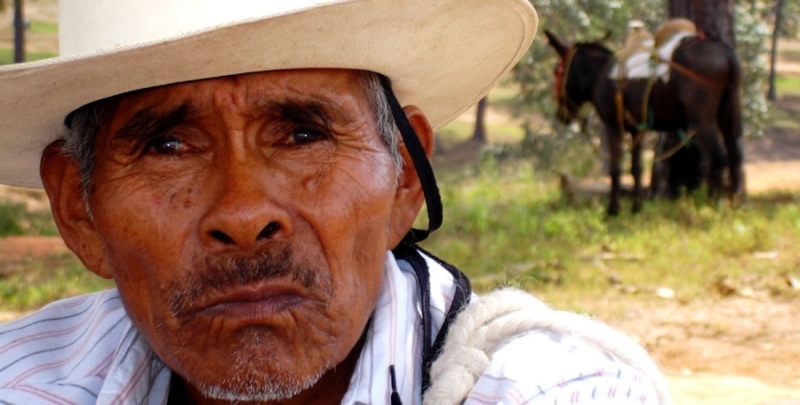Refusing revenge

The darkness of the moonless night was lighted only slightly by the distant stars. Pete and Liesl sat together enjoying the quiet of the evening, when a rap on the gate interrupted the silence.
Pete went to the door and called into the shadows, “Quien es?”
“It’s just me,” a voice answered quietly.
“I walk toward the gate and the lean outline of a friend I haven’t seen in months. It’s Humberto,” Pete says.
He explains that after being shot last summer, his friend Humberto hasn’t spent much time in their little village. “Rumors swirled that the men who shot him would like to finish the job,” Pete says. “So he left to protect himself and his family.”
When he moved away from the village quietly, Pete explains, Humberto gave up one of the basic rules of life in their remote little community.
“He gave up venganza—revenge,” Pete says. “Here in the mountains, if someone shoots you, you can shoot back. If someone kills a member of your family, you can kill one of theirs. It can quickly spin out of control, like last year when a wave of revenge killings cost six people their lives and permeated the village with fear.”
But Humberto had refused to exercise his “right” to revenge, in spite of cultural traditions. And so he came secretly that dark night to visit with Pete and avoid being seen.
“We drink coffee, we talk,” Pete says. As Humberto shares, Pete learns that he has been working in the tomato harvest on the coast. Soon tomato season would fade into mango season. But Humberto’s health will prevent him from harvesting mangos. The work is too hard for someone who is still recovering from a series of surgeries to repair his body from the damages of the shooting.
Humberto shares with Pete that he would like to take training to become a forest engineer, a job that will relieve him from the hard physical labor of working the fields. Soon he departs quietly back into the night, expressing the hope that another visit they can study God’s Word together.
Pete sits and ponders, remembering a comment about the shooting made by Humberto’s brother a few weeks earlier.
“You know why Humberto hasn’t done anything back, right?” his brother had said to Pete. “It’s because of the Word of God. He knows there’s no place for revenge in the kingdom of God.”
“I have spent a lot of time with Humberto,” Pete says. “I’ve taught him from Genesis to the Gospels. I’ve helped him harvest his family’s cornfield. I have hiked with him to villages hours away.”
But Pete found himself wondering, too. Why didn’t Humberto choose the old Nahuatl way? Why didn’t he respond in the way that generations of his people have always responded? Why did he deny himself a basic right of the Nahuatl community—one that has been practiced for generations? At first, Pete wasn’t entirely sure himself.
Humberto’s brother’s words came back to him, words that pretty much say it all. “It’s because of the Word of God.” God is faithfully at work through His Word in Nahuatl lives and culture in profound ways on many levels—some that only He knows.
Pray for Pete and Liesl as they live with and love the Nahuatl people. They have recently been approved to begin writing chronological Bible lessons in Nahuatl and will soon, along with their coworkers, begin to develop a literacy program in the village. Pray for the transforming work of God’s Word to be ongoing and mighty in Nahuatl lives and culture, overcoming old traditions and replacing them with the freedom and hope of the gospel.
